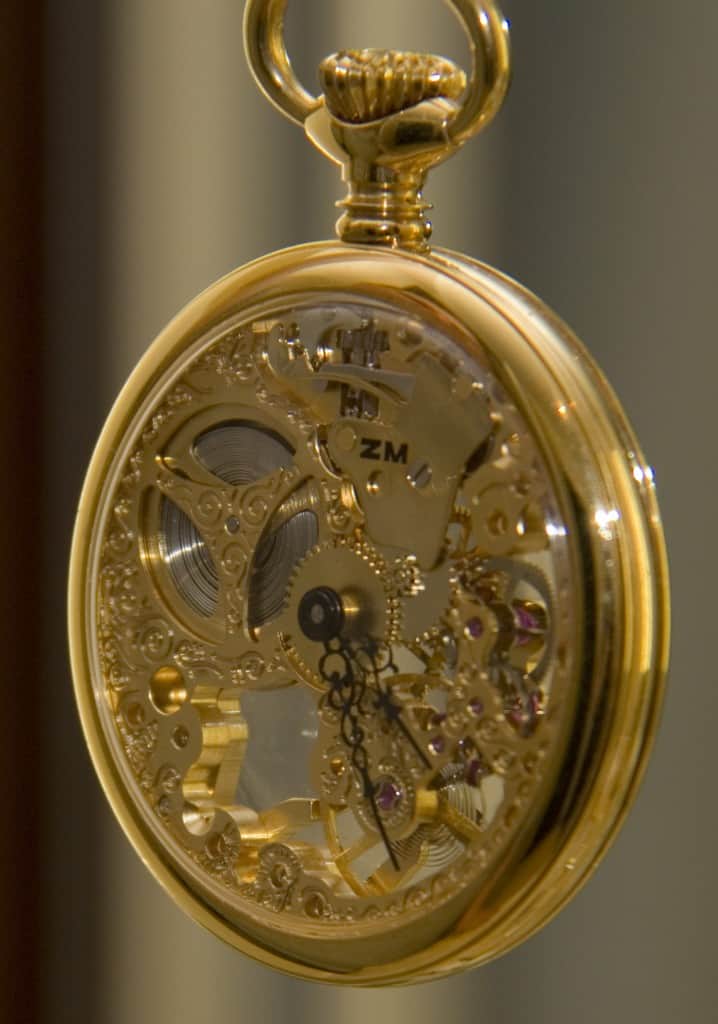Thursday Sept 15th, we left Wilmington for a 12 day cruise from Vancouver, BC to Hawaii and around the islands. We’ve been planning this trip for more than a year as 2011 marks our 25th wedding anniversary! In honor of being on vacation, I’m doing blogs for the next two weeks that have little to do with my normal areas of expertise, but are more philosophical and more creative (I hope)
As I lay awake the night before, I was thinking that I should take a watch. I haven’t worn a watch in over a year for various reasons. My cell phone has sufficed as a kind of oversized pocket watch. But on board ship, especially for the several days of open cruising, the cell phone is somewhat superfluous – except for telling time and playing “Angry Birds”.
So in the morning I dug around and found my wristwatch. Of course, the battery was dead. At 5am, I didn’t think I’d find any place open to get a new one. I thought about bringing the watch along and hoping I’d have time in an airport, or something to get a battery. Then I remembered something special.
Way back when we married, we managed to take our honeymoon in Europe. A few days each in London, Geneva, and Zermatt, and finally a week in Zurich. I pretended to work in Zurich and my employer paid for my airfare and our hotel in Zurich. As my wedding gift to my husband, we shopped on Bahnhofstrasse for a special watch. We thought being in the land of the famous Swiss watchmakers made it the appropriate gift.

We purchased a beautiful pocket watch with a clear casing and watch face so that you can see the inner workings. The hours are not marked except a small indication of 12 o’clock, so one only knows the approximate time. Mark has never used it much, because such a watch demands the right kind of clothes to wear and Mark never really liked wearing a vest with a watch pocket.
However, for this trip, it is perfect for us. I wound it up and tucked it into my jeans watch pocket and fastened the chain around a belt loop. While waiting for a flight, I was studying it again, such a precision instrument and yet such an old technology. I began thinking about the beginnings of watches and why they were invented in the first place – to keep accurate time on sailing ships so that they could know where they were even without a coastline.
You see without an accurate way to tell the exact time, mariners couldn’t take a reading from the stars or the sun and know where they were from east to west. They could always tell how far north or south they were by the declination of the sun at noon (the sun’s highest point in the sky). But the early explorers were never exactly sure where they were in longitude without accurate timepieces. To be sure, there were a number of very accurate clocks in the world in the 17th and 18th centuries, but they used gravity and/or pendulums to maintain accurate time. On a swaying sailing ship, these devices were useless.
So the British Royal Society offered a huge prize for the time for someone to invent a timekeeping device that would work on the rolling decks of a sailing ship. The prize stood for many years until a carpenter named John Harrison invented a spring balance system in 1730. His first designs didn’t work as well as needed and the Royal Society couldn’t believe someone from such a lowly profession could have created such a complex device. So he kept refining it and finally in 1761 he submitted a winning design. As he continued to refine it, he ended up with something that looks a great deal like a modern pocket watch. The prize was £20,000 (several million dollars in today’s currency).
This invention allowed a huge leap forward in the ability of exploration and commerce to move around the globe. The ability to know precisely where one was made it possible to travel more swiftly and safely across large stretches of open ocean thus expanding the British Empire into Asia and the Americas much more rapidly that they had been able to before.
Civilization changing inventions don’t come along every day and many times civilization doesn’t recognize them when they do. Clocks had been around for a long time slowly increasing in accuracy and decreasing in size, but Mr. Harrison took a different look at things and realized there had to be a way to make a chronometer that was both compact and accurate. He kept working on it until he was successful.
As we look back in history, we can see these major inventions and their impact pretty clearly. Gutenberg’s printing press, Samuel Morse’s telegraph, Alexander Bell’s telephone, Edison’s light bulb are among those inventions that changed the world. What inventions of recent times are equally world changing?

I know what you mean about watches!
I use a SUUNTO “explorers watch” with an electronic compass and altimeter – and use it regularly up in the mountains. When the lithium cell battery suddenly dies every 18 months or so I actually feel disoriented and disconnected from life….I don’t get up on time, forget to head home from work, get lost in the forests, can’t remember how many ski runs I made (if that really matters).
You folks have a fun collection!
Best Regards,
John